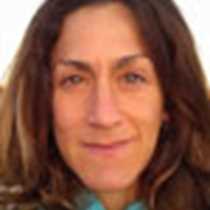Otoque & Bona Islands & the Panama Canal
The first shines of the sunrise caught the National Geographic Sea Lion navigating smoothly through the waters of the immense Bay of Panama. This vast body of water is decorated by hundreds of little islands, some of them are inhabited, and some are not.
As soon as we heard the anchor being dropped and the Zodiacs being lowered, we knew it was time to get ready, sunscreen, binoculars, hat, sunglasses, camera and water. Today we were going to explore a little group of islands just 22 nautical miles away from Panama, one of them has a little fishing town with around 300 inhabitants. They make their living from fishing, the fish will later be sent off to Panama. The other two are very important seabird colonies because of their lack of predators.
With the Zodiacs, we were able to get very close to all this abundance of life. The first birds that caught our eyes where some blue-footed boobies perched at eye level, some with truly blue feet but most of them looked a little juvenile. In seabirds, reaching sexual maturity and adulthood takes quite a long time compared to land birds. Boobies and pelicans can reach it around 2-3 years, while frigatebirds take close to 5 years. As we were exploring the surroundings, we heard the constant squawking of the boobies and the high pitch of the frigates, while pelicans are mostly song-less. On land, the vegetation creates so many obstacles that birds must have attractive calls, but seabirds nest in very open environments, so coloration will be a better flirting technique.
All these seabirds feed on fish, or squid or jellies, or… anything easy to catch. Pelicans will do it close to the surface with their graceful diving approach. Boobies are master divers reaching depths of around 30 feet and frigates, well they do not like to get wet, their wingspans (85 inches) and light body mass, make it very difficult for them to take off right from the water, therefore they are named the pirates of the seabirds. They will soar around until a booby or pelican gets a fish and then harass it, until it drops it freshly caught fish and so the frigate gets its food by stealing.
Today we got to experienced a truly, wild nature show when a black vulture started pecking on a baby frigatebird while its mother could not do more than clap its beaks into the vulture’s head. It was not the ideal Kodak moment, but in the bigger picture, it was so great to actually see nature in action. Well, after we all came back on board, we lifted anchored and headed to another great destination… the Panama Canal. So see you then…
Call +1.800.397.3348 or contact your travel advisor




